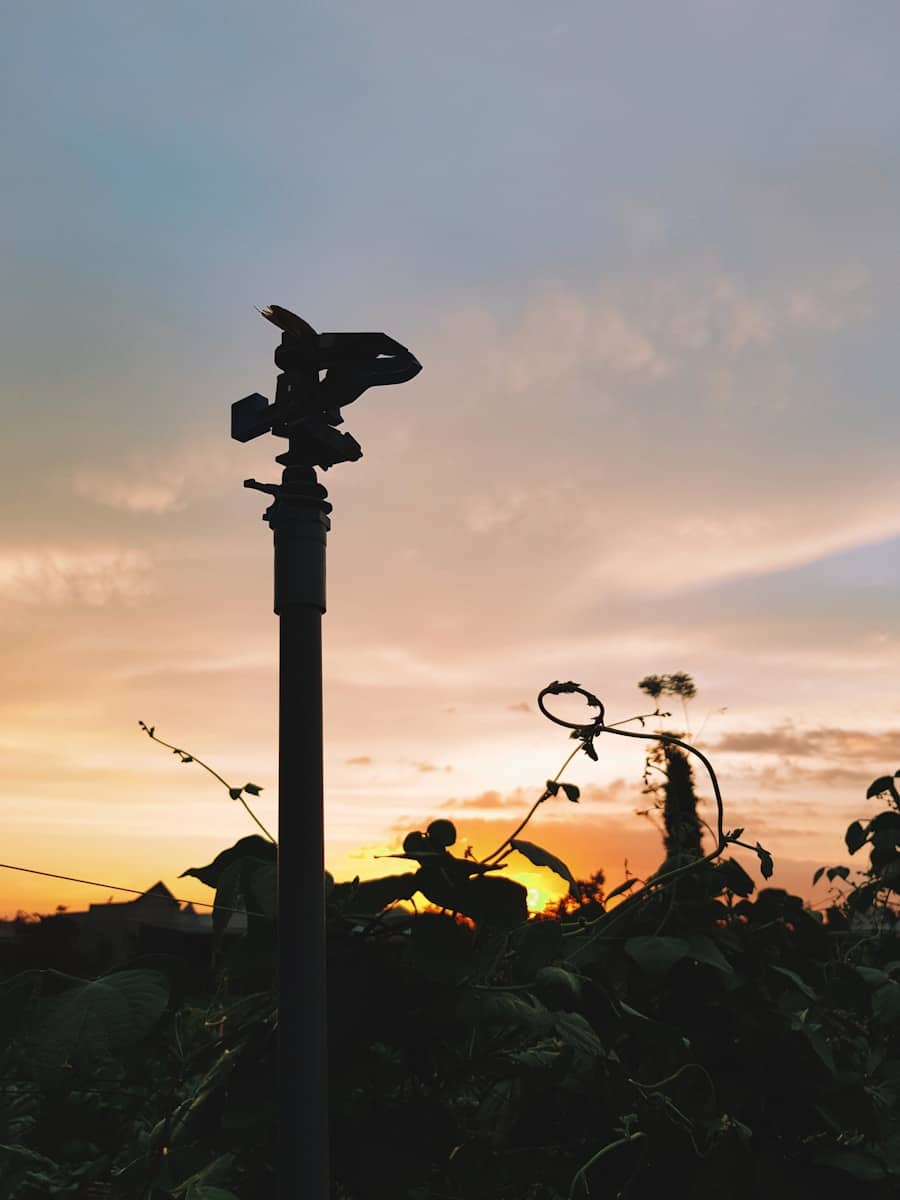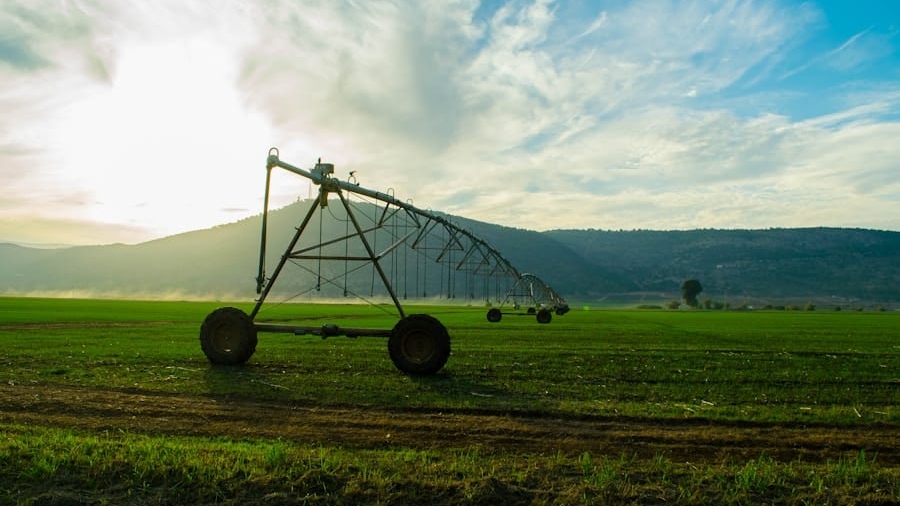Smart irrigation systems represent a significant advancement in agricultural technology, designed to optimize water usage while enhancing crop yield and sustainability. These systems utilize a combination of sensors, weather data, and automated controls to deliver precise amounts of water to crops based on their specific needs. By integrating technology into traditional farming practices, smart irrigation systems aim to address the growing challenges of water scarcity and climate change, which threaten agricultural productivity worldwide.
The implementation of these systems not only conserves water but also reduces labor costs and improves the overall efficiency of farming operations. The evolution of smart irrigation has been driven by the increasing demand for food production in the face of a burgeoning global population. As urbanization continues to encroach upon arable land, farmers are compelled to adopt innovative solutions that maximize output while minimizing resource consumption.
Smart irrigation systems are at the forefront of this transformation, leveraging data analytics and real-time monitoring to ensure that crops receive the optimal amount of water at the right time. This technology is not merely a luxury; it has become a necessity for modern agriculture, particularly in regions where water resources are limited.
Key Takeaways
- Smart irrigation systems use technology to optimize water usage in agriculture
- Sustainable agriculture is important for preserving natural resources and reducing environmental impact
- Artificial intelligence plays a crucial role in optimizing irrigation systems and improving crop yield
- AI in smart irrigation systems offers advantages such as water conservation and increased efficiency
- AI optimizes water usage in agriculture by analyzing data and adjusting irrigation schedules for specific crop needs
The Importance of Sustainable Agriculture
Sustainable agriculture is a holistic approach that seeks to balance the need for food production with environmental stewardship and social responsibility. It emphasizes practices that maintain the health of ecosystems, preserve biodiversity, and ensure the long-term viability of agricultural systems.
By adopting sustainable practices, farmers can enhance their resilience to environmental challenges while contributing to global food security. One of the key tenets of sustainable agriculture is the efficient use of resources, particularly water. Agriculture accounts for approximately 70% of global freshwater withdrawals, making it imperative to implement strategies that reduce water consumption without compromising crop yields.
Sustainable practices such as crop rotation, cover cropping, and integrated pest management work in tandem with smart irrigation systems to create a more resilient agricultural framework. By prioritizing sustainability, farmers can not only improve their economic viability but also contribute to the health of the planet for future generations.
The Role of Artificial Intelligence in Agriculture

Artificial intelligence (AI) is revolutionizing various sectors, and agriculture is no exception. AI technologies are being harnessed to analyze vast amounts of data, enabling farmers to make informed decisions that enhance productivity and sustainability. In agriculture, AI can be applied in numerous ways, from predicting crop yields and optimizing planting schedules to managing pest control and improving soil health.
The integration of AI into agricultural practices allows for a more precise understanding of the complex interactions between crops, soil, and environmental conditions. One of the most promising applications of AI in agriculture is its ability to process data from smart irrigation systems. By analyzing data collected from soil moisture sensors, weather forecasts, and historical crop performance, AI algorithms can provide actionable insights that help farmers optimize their irrigation strategies.
This not only leads to more efficient water usage but also enhances crop health and resilience against climate variability. As AI continues to evolve, its role in agriculture will likely expand, offering new solutions to age-old challenges faced by farmers.
Advantages of Using AI in Smart Irrigation Systems
The integration of AI into smart irrigation systems offers numerous advantages that can significantly enhance agricultural practices. One of the primary benefits is the ability to make data-driven decisions that lead to more efficient water usage. Traditional irrigation methods often rely on fixed schedules or manual assessments, which can result in over- or under-watering crops.
In contrast, AI-powered systems can analyze real-time data from various sources to determine the precise watering needs of crops at any given moment. This level of precision not only conserves water but also promotes healthier plant growth. Another advantage of using AI in smart irrigation is its capacity for predictive analytics.
By leveraging historical data and machine learning algorithms, AI can forecast future water needs based on factors such as weather patterns, soil conditions, and crop growth stages. This predictive capability allows farmers to plan their irrigation schedules more effectively, reducing waste and ensuring that crops receive adequate moisture during critical growth periods. Furthermore, AI can help identify potential issues before they escalate, such as detecting signs of drought stress or disease in plants, enabling timely interventions that safeguard crop health.
How AI Optimizes Water Usage in Agriculture
AI optimizes water usage in agriculture through a multifaceted approach that combines real-time monitoring with advanced analytics. At the core of this optimization process are sensors that measure soil moisture levels, temperature, humidity, and other environmental factors. These sensors provide continuous feedback on the conditions affecting crop growth, allowing AI algorithms to assess when and how much water should be applied.
By utilizing this data-driven approach, farmers can ensure that their irrigation practices align closely with the actual needs of their crops. Moreover, AI can integrate weather forecasts into its decision-making processes. For instance, if rain is predicted within a certain timeframe, the system can adjust irrigation schedules accordingly to prevent overwatering.
This not only conserves water but also reduces energy costs associated with pumping and distributing water. Additionally, AI can analyze historical data to identify patterns in crop water usage over time, enabling farmers to refine their irrigation strategies further. By continuously learning from new data inputs, AI systems become increasingly adept at optimizing water usage in response to changing environmental conditions.
Challenges and Limitations of AI in Smart Irrigation

Despite the numerous benefits associated with AI in smart irrigation systems, several challenges and limitations must be addressed for widespread adoption. One significant hurdle is the initial cost of implementing these advanced technologies. While smart irrigation systems can lead to long-term savings through improved efficiency, the upfront investment in sensors, software, and infrastructure may be prohibitive for some farmers, particularly those operating on smaller scales or in developing regions.
Another challenge lies in the complexity of integrating AI with existing agricultural practices. Farmers may require training and support to effectively utilize these technologies and interpret the data generated by smart irrigation systems. Additionally, there may be concerns regarding data privacy and security as farmers increasingly rely on cloud-based platforms for data storage and analysis.
Ensuring that sensitive information remains protected while still allowing for effective data sharing will be crucial as the agricultural sector continues to embrace digital transformation.
Case Studies of Successful AI-Managed Smart Irrigation Systems
Several case studies illustrate the successful implementation of AI-managed smart irrigation systems across various agricultural contexts. One notable example is found in California’s Central Valley, where a large-scale almond farm adopted an AI-driven irrigation system that utilizes soil moisture sensors and weather data to optimize water usage. By implementing this technology, the farm was able to reduce its water consumption by approximately 30% while maintaining high yields.
The system’s predictive capabilities allowed farmers to adjust their irrigation schedules based on real-time conditions, resulting in healthier trees and improved nut quality. Another compelling case study comes from Israel, a country renowned for its innovative approaches to water management in agriculture. A vineyard in the Negev Desert implemented an AI-based smart irrigation system that monitors soil moisture levels and environmental conditions using advanced sensors.
The system analyzes this data to determine optimal watering times and amounts, leading to a significant reduction in water usage—by nearly 50%—while simultaneously increasing grape quality and yield. This success story highlights how AI can empower farmers in arid regions to maximize productivity while conserving precious water resources.
The Future of AI in Sustainable Agriculture
The future of AI in sustainable agriculture appears promising as technological advancements continue to evolve at a rapid pace. As machine learning algorithms become more sophisticated and capable of processing larger datasets, their applications in agriculture will expand further. Innovations such as drone technology for aerial monitoring and satellite imagery for large-scale assessments will complement existing smart irrigation systems, providing farmers with even more comprehensive insights into their operations.
Moreover, as global awareness of climate change and resource scarcity grows, there will likely be increased investment in sustainable agricultural practices that leverage AI technologies. Governments and organizations may implement policies that incentivize farmers to adopt smart irrigation systems as part of broader sustainability initiatives. This shift towards embracing technology-driven solutions will not only enhance food security but also contribute to environmental conservation efforts worldwide.
In conclusion, the integration of artificial intelligence into smart irrigation systems represents a transformative step towards achieving sustainable agriculture. By optimizing water usage and enhancing crop management practices through data-driven insights, these technologies hold the potential to address some of the most pressing challenges facing modern agriculture today.
In a related article discussing the best laptops for various purposes, including engineering and design work,

